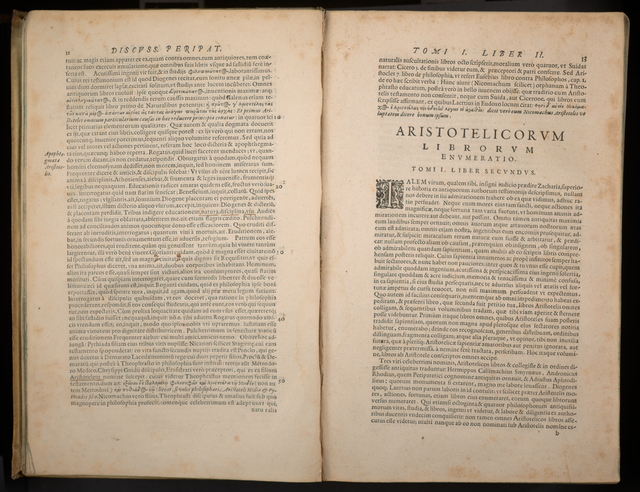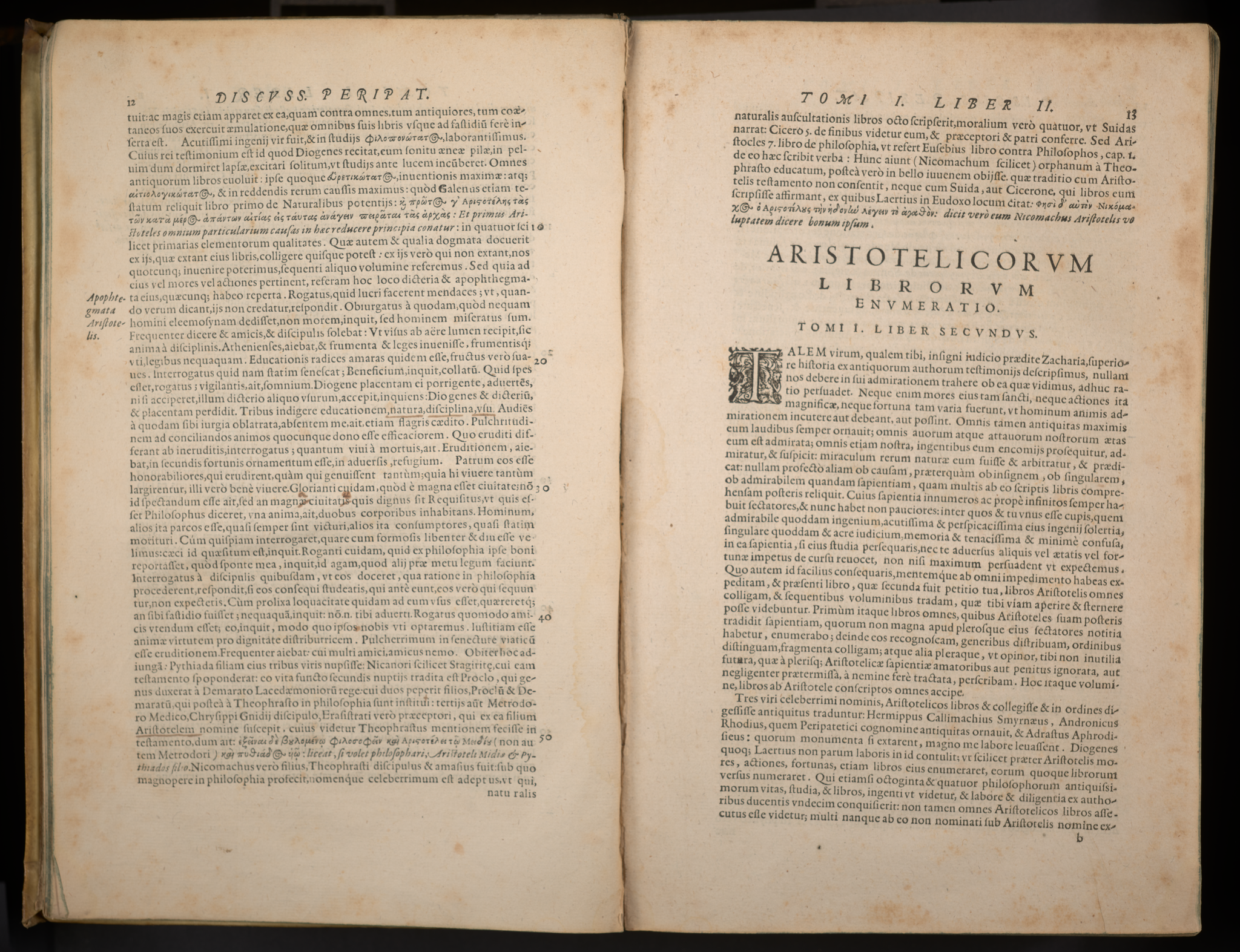XO25 Discussionum peripateticarum tomi IV

Full description
Francesco Patrizi, Discussionum peripateticarum tomi IV: quibus Aristotelicae philosophiae vniuersa historia atque dogmata cum veterum placitis collata, eleganter & eruditè declarantur. Operis veteri rerum nouitate gratissimi Argumenta sequens docebit pagina (Basel: Perna, 1581)
Penn Libraries, Kislak Center for Special Collections, Rare Books and Manuscripts, Folio GrC Ar466 T1 1581
Francesco Patrizi (1529-1597) was born in Cherso (an island in today’s Croatia) and traveled extensively throughout his life before eventually holding rare Chairs of Platonism, first at the University of Ferrara, then at the University of Rome. Proficient in Greek, Patrizi was well-equipped to conduct a serious inquiry into ancient philosophy. He favored the Pre-Socratics and Plato, gradually becoming a bitter critic of Aristotle. This solemn in-folio epitomizes Patrizi's anti-Aristotelianism.
Embracing an ancient dark legend, Patrizi claimed that Aristotle sought to destroy the reputations of his predecessors while pilfering from their ideas in order to present himself as the only accomplished philosopher. Patrizi also tried to minimize Aristotle's achievements in other ways. In the page displayed, Patrizi is concerned with rejecting the authenticity of Aristotle's writings, based on comparisons with the evidence from ancient testimonies, including Lives of Eminent Philosophers by Diogenes Laërtius. Doubts about the authenticity of the Aristotelian corpus were not new and were of particular interest to sixteenth-century writers (including Giovan Francesco Pico della Mirandola and Erasmus of Rotterdam). Patrizi radically concluded that only four Aristotelian works were entirely genuine (all of which, incidentally, are today considered spurious).
Raymona Singh
Comments
to view and add comments.
Annotations
No one has annotated a text with this resource yet.
- typeImage
- created on
- file formatpng
- file size5 MB


